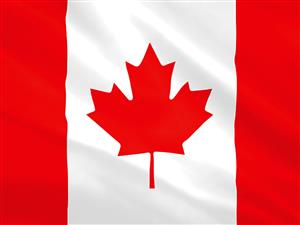
About Canada
Canada is the world's second-largest nation, located in North America. It covers over 9.98 million km² of total area. The capital of Canada is Ottawa. Canada is a highly developed and one of the most diverse ethnical and multicultural nations worldwide. In addition, the country is positioned eighth-largest in the world due to its advanced economy.
The country ranks high in terms of transparent governance, quality of life, education, gender equality, economic freedom, and so on. An Indian student willing to work and settle abroad must consider studying in Canada as one of the best options. After completing your studies, you can opt for several work opportunities and get your hands on PR.
Studying in Canada

To begin with, Canada ranks as a top study destination for higher studies due to its world-class colleges and universities that offer supreme quality education at low expenditure, low cost of living, and high safety & security. As of now, there are more than 220 public and private universities and over 213 public colleges and institutes.
In Canada, most educational institutions run on funding made by the public or the local government. Additionally, the nation ensures mandatory education for up to the age of 16-18 or until a student obtains a high school diploma. The academic year generally begins in September and ends in the mid/end of June, however, there may be variations within the country.
Moreover, Canada offers full-fledged scholarships and employment opportunities to national and international students. Besides this, many programs also offer work placement or internship opportunities, which enable the students to gain hands-on experience while studying.
Nonetheless, students with education and degree from Canadian Universities tend to have better & high chances of settling down in Canada.
Types of Institutions in Canada
Students usually get stuck in their heads while deciding which university or college to choose. Indeed it is one of the most life-changing decisions of their life. Canada houses more than 8,000 colleges and 16,000 university programs. Above all, the students are free to decide on any institution from public universities to community colleges. Here’s the list of different types of higher education institutions in Canada
Top Universities in Canada
Canada houses tons of top ranking Institutions. These institutions are ranked considering overall performance based on Quality of Education, Alumni management, High-caliber Faculty, Research performance, and so on. Some of the top global universities in Canada are listed below-
| Name of the institution | Country Rank | World Rank |
|---|---|---|
| University of Toronto | 1 | 16 |
| University of British Columbia | 2 | 28 |
| McGill University | 3 | 60 |
| University of Alberta | 4 | 68 |
| University of Waterloo | 5 | 87 |
| University of Calgary | 6 | 90 |
| McMaster University | 7 | 137 |
| Simon Fraser University | 8 | 149 |
| Western University | 9 | 169 |
| University of Montreal | 10 | 171 |

Advantages of studying in Canada
- Firstly, Canadian universities and colleges follow industry-oriented, practical, skill-based teaching-learning modules.
- Secondly, 7 Canadian universities out of 200 in the world are ranked among the top
- Thirdly, several reputed higher educational institutions also have tie-ups with high-end industries.
- Moreover, Canada is a part of the Organization for Economic Cooperation and Development (OECD), a unique forum where market-based economies work together to strategize and promote sustainable economic growth.
- In general, the tuition fees in Canadian colleges and universities are lower than in Australia, the U.K., and the U.S.
- Students studying in Canada can work while enrolled at the university.
- Loads of opportunities for part-time basis work, as well as internships, are presented to the students as medpart of their study courses.
Top courses in Canada
Canada presents a broad category of study programs for national and international students. Study programs or degrees comprise the subject fields such as Business & Finance, Engineering (Mechanical, electrical & civil), Computer & IT related, Bio-science, Medical & Healthcare, Media & Journalism. Here is the list of top-most preferred study programs in Canada-
- Global Business Management
- International Management
- Engineering
- Web-development
- Bioscience
- Marketing
- Journalism & Mass-Media
- Graphic Designing
- Agriculture science
- Arts, Psychology & Human Resources
- Hospitality Management
Cost of Study in Canada
When it comes to studying abroad countries, Canada can be an affordable pick. In addition, starting from scholarships to various part-time job opportunities there are offers ample ways to fund your studies. The total cost of studying in Canada is comparatively less than in other study destinations such as the US, UK, and Australia. Although depending on the type of university in Canada, the average cost of studying in Canada ranges from CAD 20,000 to CAD 60,000.
Let’s take a look at the overview of the cost of studying in Canada based on the type of you to choose:
| Degree Type | Average Tuition Fee (in Canada) |
|---|---|
| Bachelors | $15,000 - $30,000 CAD Per Year |
| Masters | $10,000 - $40,000 CADPer Year |
Program Intakes
Most Canadian higher education institutions and universities offer three different intakes to International Students. These intakes include - Fall, Winter, and Summer intakes. However, in some universities, intakes are also referred to as a semester.
- Fall intake - The intake begins September–December or early January. Also, known as September intake, mostly preferred by Indian students.
- Spring intake - Starts in January; January–May, also known as January intake.
- Summer intake - Usually starts around May-August, also known as May intake
Scholarships in Canada

Any international student looking for ways to support their studies in Canada can above all explore the scholarship opportunities provided by the institutions. Indeed, these scholarships are presented by several organizations Canadian governments, foreign governments, non-governmental organizations, and international organizations. On the other hand, Canadian institutions also offer short-term exchange opportunities for study or research, at undergraduate and graduate levels.
Scholarship programs for instance include Canada-ASEAN Scholarships and Educational Exchanges for Development (SEED), Canada-CARICOM Faculty Leadership Program, Canada-China Scholars' Exchange Program, Emerging Leaders in the Americas Program (ELAP), Canada-CARICOM Skills Training for the Green Economy Scholarships, Organization of American States (OAS), Vanier Canada Graduate Scholarship (Vanier CGS), etc.
Eligibility Criteria for the Admission
However, these are the items you are most likely to need if you apply to a university in the US:
- Transcripts/ records of grades (high school and/or university)
- Resume/ CV
- Proof of English-language proficiency.
- Motivation letter or statement of purpose.
- Application fee
- Test scores like SAT, ACT, GRE, or GMAT
Visa Requirement for admission
An international student must apply for a student visa before arriving in Canada. As a result, the question now is- "How to obtain a study permit in Canada?" Furthermore, the students can initiate the application process through offline or online mode at the Canadian visa office responsible for their country.
Generally, it takes from 3 to 5 weeks for your US visa application to get processed. The students should start the application process at least three months before the time of departure date, to acquire a visa on time.
Post Study Visa

While studying in Canada, the Post-Graduation Work Program (PGWP) is where students get the chance of working for three years after their post-graduation degree. Likewise, this allows them to apply for PR after they complete their studies.
After the students graduate, they have up to 180 days to apply for a PGWP. Also, the students willing to work in Canada after they graduate must make sure that their passport is valid for the entire time length that matches the duration of their PGWP. However, in case the student is willing to extend their PGWP, they have to complete the application process to extend the full duration of PGWP.
Accommodation in Canada
In Canada, different types of accommodation can be availed easily at different price categories. Nonetheless, in Canada, plenty of affordable student apartment options are available. In some residences, you will also have access to a shared bathroom (toilet, washroom, or wash area), a kitchen, Laundry facilities, and free access to wifi or internet. Moreover, depending upon the facilities offered by the university, they may charge for the services.
Students can either look for On-Campus Residences, Off-Campus Dormitories, shared rooms, or single-bedded apartments. In fact, the average cost of accommodation in Canada may differ depending on one's lifestyle and preferences. Likewise, for Shared Apartments students may be required to spend about 400 CAD - 800 CAD. While in Dormitories the cost would be 350 CAD - 600 CAD.

Cost of Living
The cost of living in Canada, on average is lower than in the United States. Nonetheless, the estimated total cost of living in Canada depends on numerous factors like housing, food, transportation, health insurance, etc. However, the average cost of living approximately would be $600-1200. Indeed, the overall cost of accommodation will notably vary in different cities in Canada.
Part time Jobs
In Canada, students are eligible to work more than 20 hours per week off campus under a temporary public policy. However, students must begin the application for a study permit before arriving in Canada.
Also, during scheduled breaks in the school year, students can work full-time on a scheduled break, such as during winter and summer holidays. In addition, students can freely work overtime or work 2 part-time jobs that add up to a higher-than-usual number of hours.
Generally, most International students prefer to take up a part-time job while studying. Likewise, some of the highest-paying preferred jobs by international students include assisting jobs like research study assistant, teaching assistant, library assistant, Food/catering/ assistant, tutoring or mentoring, and receptionist.
Please note: Working more than 20 hours per week may lead to a violation of your study permit conditions.
Job Opportunities

To get jobs in Canada an international student needs a valid work permit to join a co-op or internship program. Likewise, after completion of studies, students must apply for a post-graduation work permit to work in Canada. Also, when looking for jobs in Canada, international students need to prepare a detailed CV consisting of educational transcripts, skills, experiences, achievement records, etc. In addition, students look through various conduct to find part time jobs in Canada, for instance, Online Job Portals, Networking, Bulletin Boards, Career Centers, Local Newspapers, and so on.
Each year, Canada receives abundant immigrants as it offers superior quality education, and assertive jobs in the field of Science and Technology, Engineering, Media, etc. Nonetheless, chances of getting a job in Canada will be based on your overall, skills, circumstances, and the career option that you plan to do.
You can refer to the table below to gain insight into the preferred job roles, and Average Salaries offered in Canada - 1 CAD (Canadian Dollar) = ~60 INR (Indian Rupees)
| Preferred Job Roles in Canada | Average Salaries (Per Year) |
|---|---|
| Allied Healthcare Professional | $60,000 |
| Business Manager | $85,000 |
| Engineer | $80,000 |
| Finance / Investment / Accounting Manager | $85,000 |
| Financial Analyst | $65,000 |
| Hospitality / Tourism | $55,000 |
| Marketing Manager | $80,000 |




